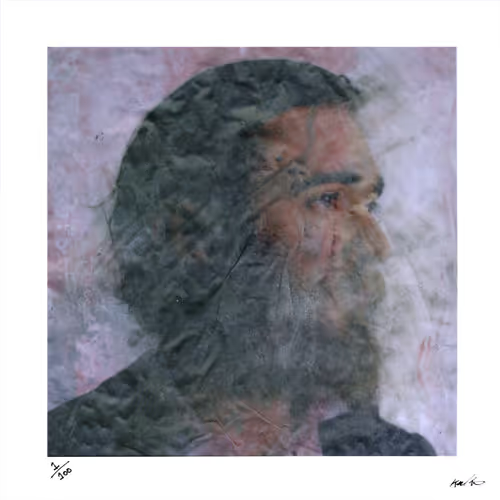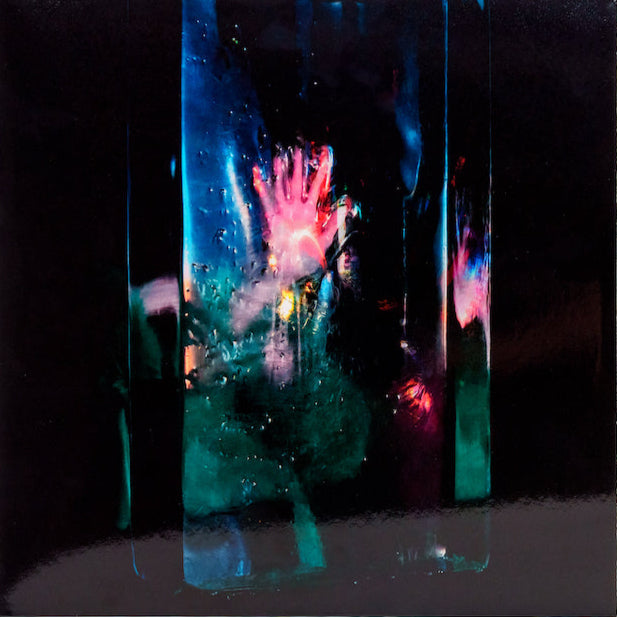
Critical Mass: Cherrystones goes digging in the post-punk underground

Gareth Goddard’s new compilation Critical Mass reinvents the art of the mix tape.
Splinters From The Worldwide New-Wave, Post-Punk and Industrial Underground 1978 – 1984. There’s a paradox at the centre of Cherrystones’ Critical Mass. Where its sub-title may articulate the sense of a scene – a temporal if not geographical one at the very least – nothing best describes the nature of this exquisite collection of music than ‘splinters’. Critical Mass is not a survey of a specific place or moment in music as much as one man’s experience of that music, reassembling those splinters into an intuitive, dystopian vision of what a compilation can become.
It is radical, because like the music itself, it seeks to distance itself from context and intellectualisation in favour of raw emotion and spontaneity. There are no liner notes to speak of with very little information about the musicians available, not out of a sense of wilful obscurity or the preservation of rarity, but out of a desire to free the listener to experience just the music. As Cherrystones describes:
“This compilation was put together through records I was enjoying at that time – loose chips, fragmented discoveries, random punts and the true excitement from that hit of “What the fuck is that?!” It is an exercise in the good and the rad – solid jams from all corners of the world. A veritable platter to switch on the uninitiated or those who hear and feel the truth – it is not an exercise in rarity to make people feel alienated. I know what I feel and I hear the messages and feel the vibrations in these very songs – as will you if you allow them to.”
Heralded alongside Trevor Jackson and Andrew Weatherall as one of the UK’s preeminent musical encyclopaedias, we sent a few opened-ended questions to Gareth Goddard aka Cherrystones to discover a little bit more behind this unique compilation – his first in eight years. The response was fascinating, outspoken and wildly enjoyable to read.
What motivated you to put together Critical Mass to begin with?
In essence my main motivation was to programme and sequence a compilation of music by artists I loved and had lived with as a style for many many decades. At the same time break the tedious nature of how “psych” is presented (as that genre is the one I seem to be associated with) and maybe by example demonstrate it’s not limited to fuzz pedals, wah wahs and Sean Bonniwell haircuts. Although this is not, as I suggested, a psych comp, I just wanted to break away form the stigmatisation of the genre in its current setting.
The tracks are not united by country or (explicitly at least) scene, what binds them together for you?
The fact they are not bound by country is also to help expand people’s musical horizons and highlight the globe as a place we live and communicate within. That’s the craft of the audience who pay attention and forge links within the styles.
Why was this such an exciting period to release music around the world? It seems they share a serendipitous feel.
For me personally, without walking the cliché plank, the obvious things were different then. The craft and resources were a little less uptight to a degree – DIY was exactly what it meant and not a vehicle to add another 5-10 pounds to any release because it was hand made or bespoke. Things were more honest and more felt, rather than seized and dictated to the same marketing demographics that the initial period was kicking against. Basically it was more sincere and less veiled and people meant what they said and did. Now you can be more seduced by ownership of emotions via music than the experience of it or being inspired and having a dialogue with it.

The tracks on there are pretty obscure – how did you hunt them down and are there any stories behind getting hold of these records?
Well to be fair yes, some are obscure and some not, it depends on your life and listening habits I guess. That aside it is for me exactly what I sub-titled it “Splinters”. This is a microscopic drop in the ocean of my archive and listening within that or those genres of punk, post-punk and industrial. I programme all the comps as a flow, as an overall listening experience. Overall I try to complete a comp as a meal – as a starter, main course, dessert and coffee or aperitif…
The songs have to have a relationship with each other sonically and as a dynamic otherwise it’s just throwing it all in the pot and hoping it tastes nice, which is not my style. I also love cooking so this is the root of it all. In a generation where all the ingredients are laid bare people often take things for granted and end up with jarred sequences as they have not lived with them or through them. I’m not into the record collector thing so much and do not wish to adhere to the demographic of filing stuff away to just gain kudos on rarity. I do like obscurities as I have a soft spot for outcasts and non-hits and would like to embellish them into a new setting.

As far as tracking down goes I tend not to buy online but have a few spots and off the radar – smaller settings – where I regularly look and purchase. I like the challenge of discovery. It’s far more rewarding than endless clips or sound bites or streamed videos eventually leading to some nirvana built off a fan boy’s sweat.
One example of a track was the Tee-Vees’ ‘War Machine’ which I just saw in a box of moderately priced records whilst noticing it was on the Good Vibrations label. As you know David Holmes was and is heavily involved in the making of the film as a producer and Glenn Leyburn who created the artwork for my Hidden Charms comp also directed the movie. So when finding this, as I was just about to play David my ideas as a rough draft, it felt like there was a natural synchronicity with the whole concept. Through many years I’ve learned to read labels, artists, players and producers to form an opinion on sight along with the aesthetics of design from those eras and genres. Taking a portable player out is never really needed to a degree, it’s mainly feel and years of it.
In the statement that accompanies the release you talk about not wanting to alienate people. Could you expand on that a little? Was there some aspect of collecting and releasing records you had in mind?
When I said ‘alienate’ I meant I had no intention of creating a compilation that would make people feel lost or not part of some fucking members club which is how a lot of self-allocated record collectors like to be perceived. They are more about the catch than the fish, the glory and the competition – all talk of rarities with no insight or passion for music as medium. Their first point of reference is rarity, obscurity & price and most of the time they do not own or have heard of these bands they try to uphold as a primary influence. They are people who would never play a Black Sabbath track but would happily play an Indonesian imitation; or a rare funk track but not know or own records by Funkadelic or the Meters; or obscure Italo not knowing most of it is Moroder derivative or imitation Pet Shop boys or Depeche Mode – going into the deep end with no arm bands.
It usually reeks of insecurity and using music as an extension of what they’d like to be. Things that appeal to me are human, felt and honest. I can flirt with both sides of the collectors “game” because I appreciate the roots and the branches of all and have dedicated my life to this as a love of music and as an art form. As you live through them, your pallet will expand as with taste on your tongue, but you do have to know the basics otherwise the only one you’re fooling is yourself.






How representative is this compilation of your collection in general?
Well I’ve been a fan of punk since I was 12 years old and saw many very iconic bands. I first heard the Swell Maps at that age as well as the Dead Kennedys, Discharge, Flux Of Pink Indians etc. The Swell Maps led to Can who are one of my all time favourite bands. I think the term ‘representative’ might be correct but it’s so much deeper than that. As a listener and avid fan of music as a whole I chose these bands as they were embodying other aspects of my taste within their supposed genre. They have elements and influences I share and they cook them up good.
For example the Bo Didley beat of Belgium’s Aksak Maboul, the re-working of Sonny and Cher’s ‘The Beat Goes On’ as social commentary (which was also quite punk in its stance even though it was a pop hit), the gridded house-esque rhythm of Chandra, the haunting minimalism of Fote, the Velvet Underground-meets-Suicide of 39 Clocks. All these are strong characters remoulded into their own vision. Flipping things out of their ordinary settings excites me.
You talk about some of these tracks being ‘random punts’ – what’s your ethos when it comes to record buying/collecting?
As I previously mentioned, the mystery has far more excitement than the obvious. I like discovery, the thrill of maybe buying a record on an intuitive chance to then find it has a bad A side but a killer B side or right in the middle there is great hook or a moment of complete freedom and emancipation far away from the real world or the fruit and veg market ideology of major labels.
When it’s a craft not a routine, that’s what I love in music; the mistakes that are genius, the happy accidents, the day the producer thought adding an extra layer of reverb would be a good move and it was or when the feedback becomes a layer to weld it together. I just shy away from public opinion and suggested avenues when it comes to buying. If it did not sell it was either due to it being far too futuristic or the A&R did not know where to put it. I run a rescue home for these types of music and I enjoy and see merit in the ability to not be perceived as perfect. As far as music as a medium to elevate, like making music it’s all trial and error mixed with experience and a desire to learn from all of those attributes.
Critical Mass is out now on Touch Sensitive and available to buy here. Look out for the forthcoming 45 on Touch Sensitive curated by Cherrystones as “one of the most interesting hybrids of music I have had the pleasure to put into the light again”.
Keep up to date with developments on his Facebook page.









